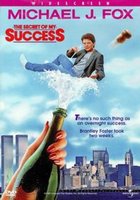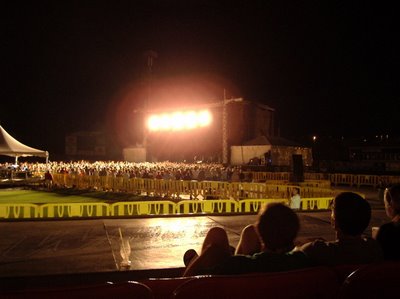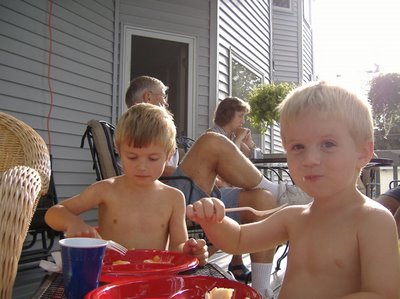"Oh, [CrimeNotes]," incredulous, "give me a break," she said, "don't tell me you're one of those lame people who says," adopting a mock boo-hoo, "'The happiest time of my life was in college and everything afterward sucks.' Only dorks say that."
What might have shocked me more? If, without warning, she'd punched/stabbed me. If she'd flashed me. If she said that she voted for Bush.
I wasn't offended, just startled. More than startled. Shocked. It never occurred to me that there was any other option. Not for lottery millionaires, recipients of the Nobel Peace Prize, Superbowl MVPs, popes or generals, heirs to fortunes or the women that marry them.
I do not have many overarching beliefs that guide my life, but this is one of them, and one that I never expected to hear challenged.
Obviously, there or no absolutes, so my co-worker's remarks forced me to modify my views. I'm now convinced that for college not to be the happiest time in your life, you either were the victim of a serious crime or clinically depressed for four years.
Kicking and Screaming is a movie for people who share my conviction.
In June, our comments in a post about soccer turned a long digression about Kicking and Screaming, the 1995 movie by Noah Baumbach. It's finally available on DVD, which m
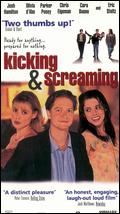 eans it is just in time for autumn and the biologically dictated nostalgia that comes when temperatures finally drop into the 50s and 60s.
eans it is just in time for autumn and the biologically dictated nostalgia that comes when temperatures finally drop into the 50s and 60s.Kicking and Screaming is about a collection of recent graduates from a small liberal arts college. (Picture Middlebury or Haverford.) It is about very literate, sincere, neurotic guys and the more mature, realistic girlfriends who bedevil them.
The movie begins at a party on the night of college graduation, where there are tones of toughness and regret in their conversations. The main character, Grover, is told by his girlfriend, Jane, that she'll be moving to Prague instead of living with him in Park Slope. This startles Grover. The following exchange ensues:
Grover: Oh, I've been to Prague. Well, I haven't "been-to-Prague" been to Prague, but I know that thing, that, "Stop shaving your armpits, read The Unbearable Lightness of Being, date a sculptor, now I know how bad American coffee is thing..."From that night, the movie jumps a few months forward. Our main characters are living in a house just off campus. One pines for a girl still there as an undergraduate; another starts a book club but fakes having read Cormac McCarthy.
Jane: They have good beer there.
Grover: "... now I know how bad American beer is thing."
They have the luxury of being too clever and privileged to worry about poverty or true failure. Instead, they're confronted by the prospect of gradual, inevitable descent.
One thing must be made clear: Kicking and Screaming is not a great movie. Though the cast is mostly excellent -- including Chris Eigeman from the Whit Stillman movies; Josh Hamilton; and Olivia D'A
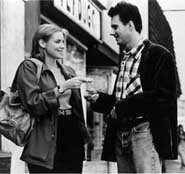 bo -- the acting is spotty, and at times the dialogue is too clever by half. Occasionally it crosses a line from sentimental and witty to outright annoying.
bo -- the acting is spotty, and at times the dialogue is too clever by half. Occasionally it crosses a line from sentimental and witty to outright annoying.Other points worth noting: it is not like the Will Ferell movie of the same title; it also is not like Old School. It is not as funny as Baumbach's great 2005 movie The Squid and the Whale, and also lacks that movie's heart of darkness.
But for everyone who loved The Squid and the Whale (a group that probably includes everyone reading this) some of the background noise in Kicking and Screaming is reassuring. You'll recognize certain grace notes -- how Grover and Jane write fiction and want to live in Park Slope, and the moment when Grover's father (played by Elliot Gould) begins an unselfconscious discussion about his own sex life, therein startling and upsetting his son.
It was made a decade before The Squid and the Whale, but it may not be possible to watch Kicking and Screaming without imagining that Grover is Walt, and feeling good that, yes, everything turned out all right for him.
Ultimately, the pleasure of Kicking and Screaming is its dialogue, its attention to the small details, its likeable characters, and its perceptiveness in understanding a moment. Like the hedgehog, it understands one large thing, and understands it well.
A few more lines of dialogue worth memorializing:
"What I used to pass off as just another bad summer could now potentially turn into a bad life."The summer before my senior year of college, I spent a lot of time with a friend named Tyler who graduated that spring. Tyler rented an apartment a few miles off campus. He worked at a bookstore, had an English degree, and was ridiculously literate. For the next year, after his graduation, he lived like one of the characters in Kicking and Screaming. At some point he discovered this movie on VHS. I must have watched it with him four or five times.
"I'm nostalgic for conversations I had yesterday. I've begun reminiscing events before they even occur. I'm reminiscing this right now. I can't go to the bar because I've already looked back on it in my memory... and I didn't have a good time."
My coworker might not have understood this, but Roger Ebert did. If you're ever tempted to dismiss Roger Ebert as a hack who is too generous in his critiques, read his review of Kicking and Screaming. It describes the movie's pleasures more gracefully than I do:
What struck me about "Kicking and Screaming" is that it captures so accurately the fact, dimly sensed by undergraduates even at the time, that the college years are the happiest in their lives.
One spends four years talking about ideas, concepts, art, theory, history, ideology and sex. Then one goes into the world and works like a dog until retirement.


